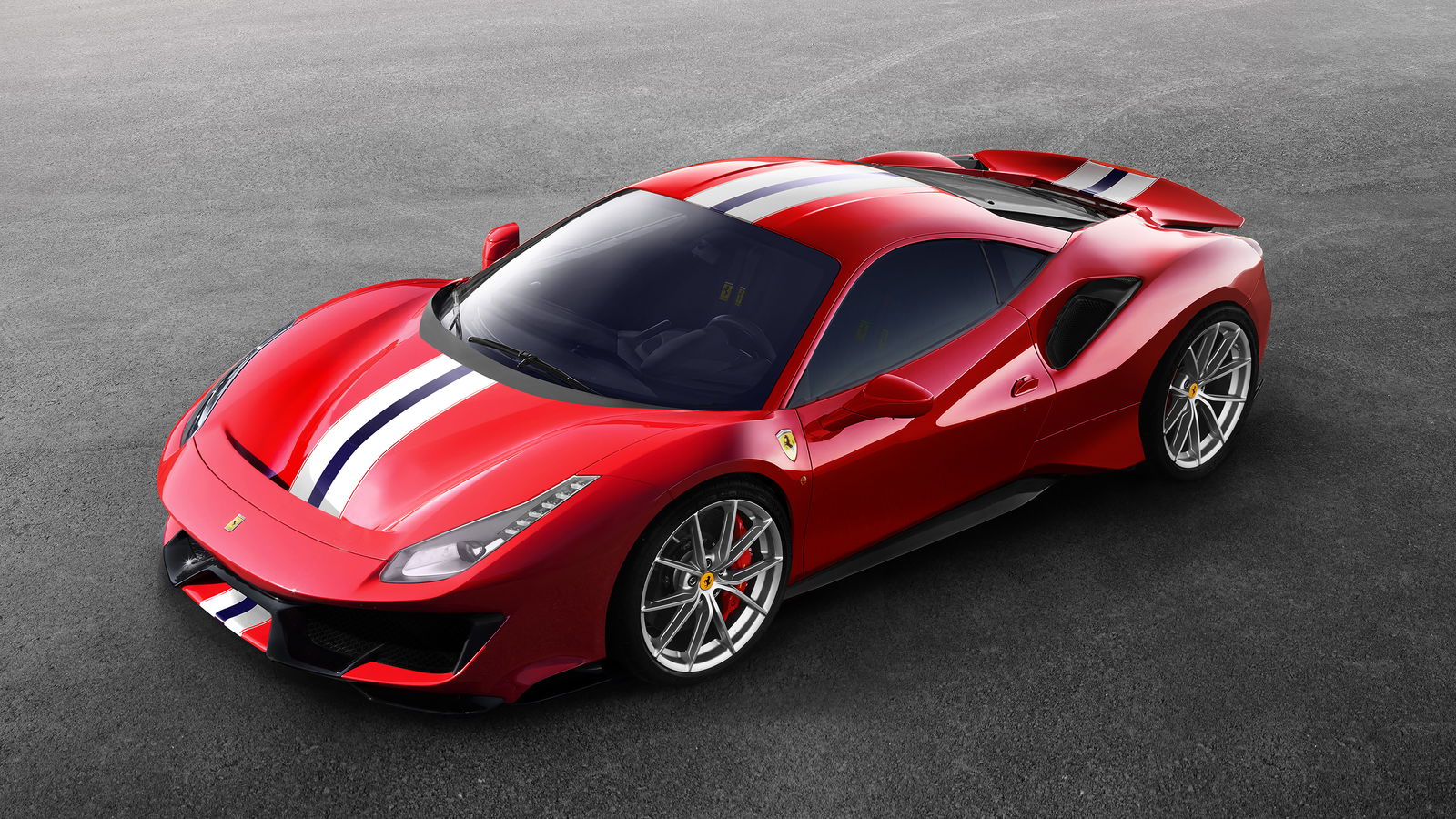8 Engines That Could Be The Best Of The Last 20 Years

The news that Ferrari’s 3.9-litre V8, codenamed F154 and turned up to 11 for the 488 Pista, has won the accolade of ‘best engine of the last 20 years’ got a lot of you talking. Are the International Engine of the Year judges talking out of the wrong orifice?
That F154CB motor is a hell of a thing, technically and emotionally. There’s no doubt about it. But… really? Best of the last two decades? The argument in favour is strong: You’d be hard-pressed to find a better engine right now. But that argument is unfairly bolstered by time.
Comparing today’s cutting edge to the cutting edge of 20 years ago isn’t exactly fair, and if we adjust subjective opinion to reflect the times other engines came from, plenty of other options look very serious. Let’s go through a few.
This V10 was the most popularly upvoted and easily the most hotly argued alternative. Built to be the most technically superior engine that Lexus could devise, it became one of those incredibly rare pieces of history where science becomes art. In the 1LR-GUE, they were one and the same.
It pioneered new technologies, new blends of materials and weighed no more than an ordinary V6. Its 553bhp wasn’t spectacular, but by the beard of Zeus was it dramatic. Lightweight forged internals could cope with the 12:1 compression ratio and made it able to rev so fast that an analogue rev counter needle simply couldn’t keep up. Idle to the 9000rpm redline came about in 0.6 seconds.
The unusual 72-degree angle between the cylinder banks was said to be the perfect one to balance the specific movements of this engine. It was butter-smooth, had throttle response you could cut yourself with and made the kind of noise that earns an engine legendary status. Somehow (a bit suspiciously, frankly) it never won any category of the International Engine of the Year awards, but to us it has to be a contender.
It’s incredible just how much Porsche has been able to extract from the 911’s flat-six over the years. Sure, at four litres it’s not exactly a small unit so you’d always expect it to be powerful, but it’s the sheer scale of the engineering that has gone into it.
The latest version in the 911 GT3 is the one we’re picking out for the highest praise. Known as the MDG.GA in Porsche’s technical documents, extensive revisions from its predecessor in the pre-facelift 991-era 911 have lifted the rev ceiling to a storming 9000rpm. Matt R rather liked it, too.
To get a flat engine to rev so high is impressive enough to earn a seat at engine folklore’s top table. But while various Porsche engines have won category awards at the annual ceremony, the Stuttgart sports car maker has never taken the big prize. We think that’s a bit odd.
To be clear, no, we’re not saying that the F20C found in the legendary and always controversial S2000 is better than the F154 V8 in the Ferrari 488 Pista. We are saying, though, that the scale of the F20C’s achievements is all the more massive given that it came almost 20 years ago.
Honda designed this engine solely for the S2000. That made it instantly special. Its use of advanced (for the 1990s) materials to permit the pistons to travel at a bonkers 24.6 metres every second was unprecedented, and most of you will already know it held the record for the highest specific output of any mass-production naturally-aspirated car engine until the Ferrari 458 arrived many years later.
Getting a production engine to achieve what the F20C did in the late 20th century was incredible. It has to be a worthy – if only four-cylinder – inclusion on this list.
The first engine that AMG itself designed from scratch was also possibly its finest hour – at least in some ways. The 6208cc M156, badged as a 6.3 for heritage reasons, was ballistic, bombastic and as brawny as it got in the mid-2000s.
If engine awards were doled out solely on the basis of character, this one would have swept the board for years. Hard, rapid throttle response and all the noise you could wish for gave the M156 a life of its own; a half-drunk German heart behind a W204 chassis that often failed quite spectacularly to keep it in check.
It also spawned the race-spec M159 engine that saw service in the SLS AMG. What higher praise could we offer for its inclusion in any ‘best engines’ list?
We can already hear the bile rising in some of your throats, so just bear with us on this one. Few engines, if any, have brought affordable engine swap projects to the masses like the LS1 V8. Aside from the fact that this small-block, lightweight unit is a masterpiece of bang for your buck even where fitted at the factory, its easy availability as a crate engine or from crash-damaged cars has put it on more driveways than we could probably count.
The LS1 V8 is an everyman’s hero engine. It lacks the glamour of a supremely clever (and expensive) Ferrari V8, but what the LS V8 has achieved reaches further and touches more people. On top of that, its robustness makes it great to tune, its compact size means it fits into almost anything with four wheels (even if you have to mid-mount it) and parts are always available. This is a truly brilliant real-world engine for people like us.
Less easily accessible is the F1-derived V10 from BMW’s E60 M5 and E63 M6. Developed in a programme linked to BMW’s engine supply to the Sauber F1 team in the V10 era, it was – and still is – an incredible piece of engineering.
This 5.0-litre screamer could hit 8250rpm and won its own International Engine of the Year awards in 2005 and 2006, so it’s no stranger to lists like these. Among its advanced features were a high 12:1 compression ratio an uneven firing order that helped make it sound incredible.
It had 10 electronically-actuated individual throttle bodies, a suitably brisk response under your right foot, and despite a heinous thirst for super unleaded it will always be one of the most emotive engines ever put into a road car.
Mazda’s decision to persevere with rotary engine tech was a brave and ultimately doomed one, but it was made just as emissions-led taxation was starting to appear in Europe. By the time Mazda knew the Wankel had been the wrong choice for the EU from the start, it was too late.
That said, the company seemed to shift plenty of them. The 13B-MSP from the RX-8 defied the odds to win the International Engine of the Year gong in 2003, on top of its category win for Best New Engine. Plenty of people bought into the concept of low-displacement, high-revving and finely-balanced handling, all with four seats and four doors. Sort of.
Interestingly, the last Renesis engine could also run on hydrogen; Mazda built a dual-fuel concept in 2008 that could drive up to 60 miles without producing anything other than water vapour before switching back to petrol. If that’s what a hybrid future could look like, we’re on board.
Although it hasn’t been put into a production Koenigsegg yet, the company’s Freevalve technology will surely earn it a medal or two when it does. Oddly, Chinese company Qoros bought the rights to be the guinea pig and use it in its ‘3’ model’s paltry 1.6 engine. It has since produced the first known working prototype vehicle this century to use pneumatic valves.
The system does away with the likes of throttle bodies, camshafts, timing gear, wastegates and direct injection systems, making the engine vastly simpler, more reliable and cheaper to make, not to mention lighter. When it goes global, it’s going to be a revolution.

Comments
Missing the voodoo v8
I haven‘t driven most of them, but the 6.2 AMG is just phreakin amazing! Much smoother, nicer sounding and torquier than the new 4.0
bmw n54????
RB26DETT ?
S85 boooooys
Honda D16W1 :] simply because that’s what my Honda HRV GH has
Forgot the BMW Inline 6.
What about the hellcat?
Porsche Carrera GT Hello ?
None of them talk about horse power per litre, response time, effeciency or viberations from the engine.
Pagination